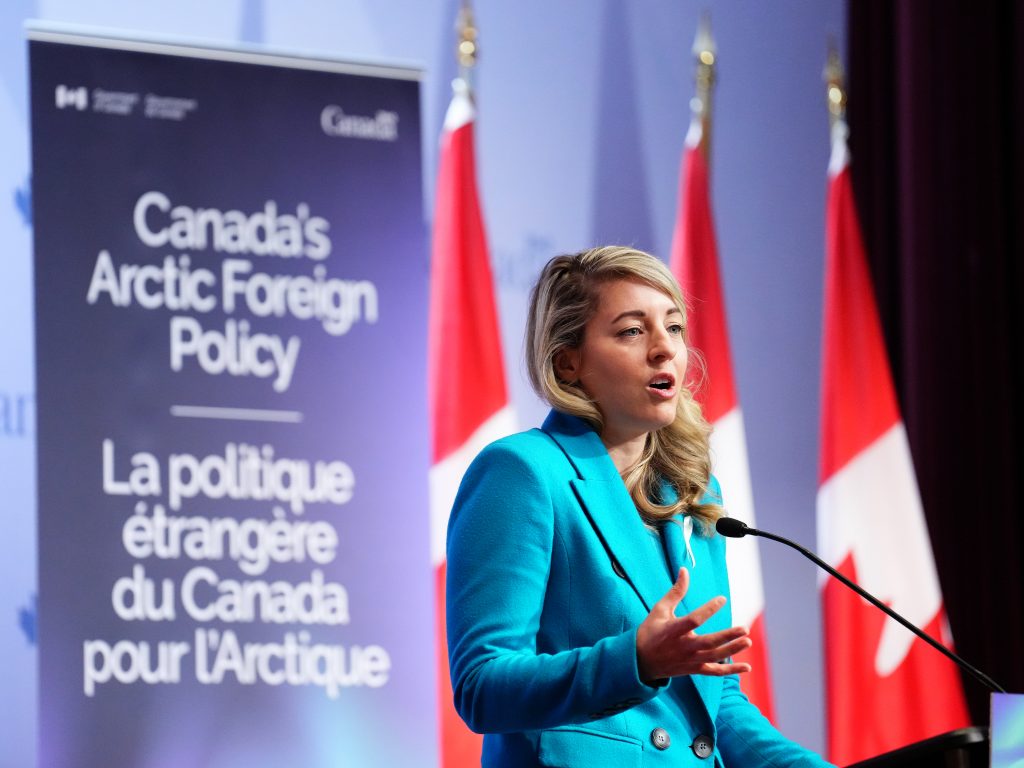Canada Unveils New Arctic Foreign Policy with Focus on Sovereignty and Diplomacy
Canada has announced a bold new Arctic foreign policy aimed at strengthening its sovereignty, expanding diplomatic ties, and addressing mounting security concerns in the region. Key initiatives include opening consulates in Alaska and Greenland, appointing an Arctic ambassador, and advancing boundary negotiations with the United States over the Beaufort Sea.
The federal government unveiled the policy in Ottawa on Friday, in collaboration with northern premiers and Indigenous leaders. It builds on the 2019 Arctic Policy Framework, which outlined Canada’s commitment to transforming its approach to the North.
Key Features of the New Arctic Policy
The 37-page policy document outlines several initiatives to bolster Canada’s presence and influence in the Arctic:
1. New Consulates and Ambassador: Establishing consulates in Alaska and Greenland to strengthen diplomatic and economic ties, and appointing an Arctic ambassador, who will be an Indigenous person.
2. Boundary Negotiations: Continuing discussions with the U.S. over the Beaufort Sea and finalizing the boundary agreement with Denmark over Hans Island (Tartupaluk).
3. Arctic Security Talks: Engaging with foreign ministers of other Arctic nations to address security concerns.
4. Science and Research Coordination: Supporting collaborative research to address challenges unique to the Arctic.
5. Addressing Russian Activities: Highlighting concerns about Russia’s military modernization and infrastructure development in the Arctic.
Security Concerns and Geopolitical Tensions
Foreign Affairs Minister Mélanie Joly emphasized the growing threats in the Arctic, stating, “Russia has no red lines. The Arctic is no longer a low-tension region.” The policy document underscores the proximity of Canada’s northernmost military base in Alert, Nunavut, to Russia’s air force base at Nagurskoye, signaling heightened concerns over Arctic militarization.
Joly outlined four key pillars of the policy: asserting Canadian sovereignty, advancing pragmatic diplomacy, leading Arctic governance efforts, and promoting inclusive approaches that prioritize the voices of northern residents.
Indigenous Involvement and Historic Reconciliation
A significant shift in the new policy is its emphasis on Indigenous leadership. Inuit Tapiriit Kanatami President Natan Obed praised the policy, noting it allows Indigenous communities to fully exercise self-determination.
“Too often, Indigenous peoples have been completely left behind,” Obed said. “This policy changes that dynamic.”
Nunavut Premier P.J. Akeeagok echoed this sentiment, reflecting on Inuit sacrifices made in the name of Arctic sovereignty. “Our territory is ready to strengthen those diplomatic ties,” he said. “It’s our lands and waters we are talking about.”
A Stronger Future for Canada’s North
With funding allocated for Global Affairs Canada over the next five years, this policy marks a significant step toward securing Canada’s Arctic future. From addressing geopolitical tensions to fostering reconciliation with Indigenous communities, the government aims to create a robust and inclusive framework for Arctic diplomacy.
Source : Swifteradio.com


